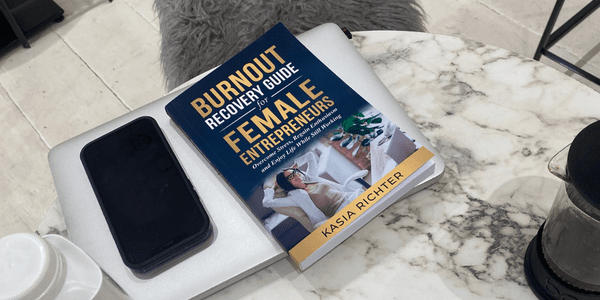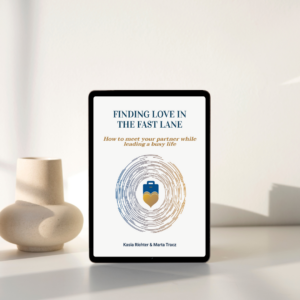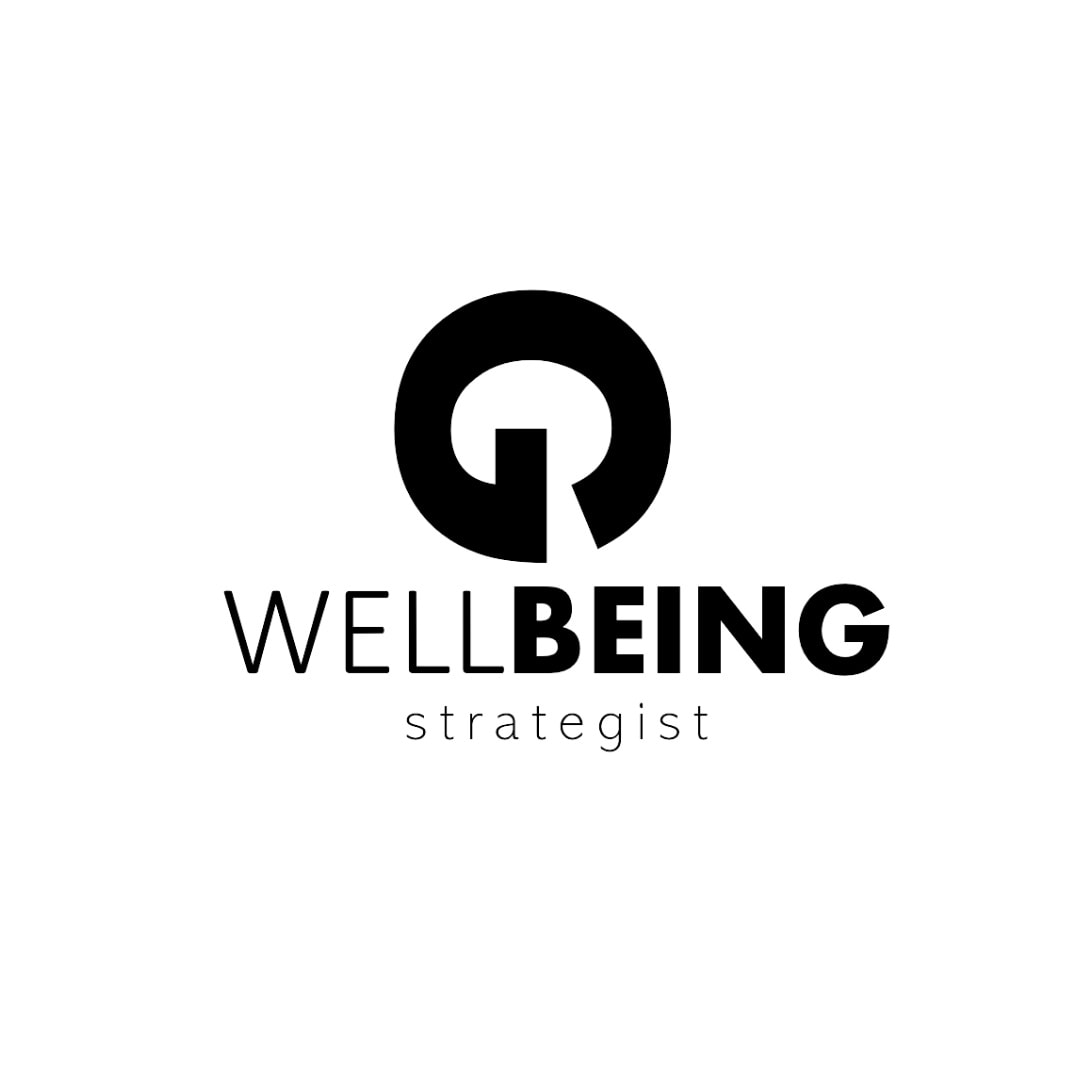When Executives Can’t Switch Off: Navigating the Challenge of Relaxing
The problem with switching off
As a psychologist observing today’s relentless business landscape, I’ve spotted a troubling trend – executives and entrepreneurs who simply cannot disconnect from their work, even during vacation. The stats tell it all: 80% of leaders report feeling shackled to their roles, unable to silence work-related thoughts that haunt them day and night. Small firm owners who do go on holiday are often in touch with their companies while away and 62 per cent take a business mobile phone with them.
Table of Contents
This phenomenon strikes at the core of modern work culture, fueled by digital tethers and the relentless pressure to deliver. It resonates most with the leaders and changemakers who shape our future yet ironically struggle to press pause.
While many leaders see working nonstop as a badge of honor, perpetual connectivity comes at a high cost. Chronic stress, fatigue, and burnout undermine an executive’s cognitive abilities, health, and well-being over time. Studies show overstressed leaders are prone to premature aging and cardiovascular disease, while taking more sick days. These personal consequences also ripple into business performance. Burnt out and distracted executives make poorer decisions, demonstrate ineffective leadership, and perpetuate toxic organizational cultures.
In this article, we’ll dive deep into the psychological reasons behind failing to switch off. We’ll examine the complex roots of their tireless drive and unpack strategies, both personal and organizational, to help guide them back from the brink of burnout.

The Paradox of Switching Off for Executives
For ambitious leaders, truly switching off can seem counterproductive, if not impossible. Executives pride themselves on drive, work ethic, and commitment to their organizations. Admitting the need for downtime conflicts with the prevailing hustle culture mentality. Leaders may interpret breaks as laziness or lack of dedication. They feel compelled to model 24/7 availability, checking emails on vacation and taking calls during family dinners. Executives believe they must always project success and control. Taking time to relax means relinquishing this illusion. Despite realizing overwork is unhealthy, they cannot silence the inner voice demanding more.
For many executives, the drive for success stems from an underlying fear of missing out. Leaders feel they must always be working to get ahead of the competition and stay relevant. With technology enabling 24/7 access, there is a pressure to capitalize on every single moment. Executives anxiously obsess over what opportunities they might be missing when away from work. Even simple downtime activates FOMO, making relaxation impossible. Additionally, many top performers suffer from perfectionistic tendencies. They set impossibly high standards and chronically doubt themselves. Vacation naturally involves ceding control and lowering expectations, causing distress. Until leaders address these success-based anxieties and fears, disconnecting will continue feeling impossible.

Why High Achievers Struggle to Relax: How Perfectionism Drives Executive Burnout
Leaders pride themselves on drive, productivity, and an unwavering focus on achievements. So for many work-devoted executives, the notion of relaxing on vacation prompts deep-rooted guilt and distress. This phenomenon reveals the ingrained psychological associations such individuals have developed around performance and self-worth.
High achievers commonly exhibit perfectionistic tendencies, setting impossibly high bars for success while chronically doubting themselves.Vacation requires executives accustomed to being in charge to surrender control – a change that can trigger anxiety for many used to calling the shots.
On a neurological level, the executive brain has wired itself to equate productivity with validation, responding to achievement with a chemical rush of feel-good dopamine.
In contrast, downtime often feels punishing, triggering threat responses. Overcoming this hardwiring requires mindset work to reframe leisure as a tool for enhancing, not diminishing, sustainable performance.
Executives must recognize relaxation provides an opportunity to restore mental acuity, stamina, and inspiration for continued excellence. With this understanding, leaders can override engrained associations so that recharging elicits neurological rewards instead of distress. Achievers would do well to approach vacation with the same diligence and goal-setting applied to their work.
For the success-driven executive, escaping stress often proves paradoxically stressful. Yet by tackling the roots of leisure-based anxiety, sustainable productivity within a balanced lifestyle is possible. The executive brain, with its relentless focus, is uniquely equipped to turn vacation into a science of mental renewal.
Many successful executives exhibit perfectionistic tendencies – setting impossibly high standards and chronically doubting themselves. This breeds an intense need for control, leading them to micromanage everything to ensure flawless outcomes. Perfectionism and control needs underpin the relentless achievement drive that propelled them to the top. However, these traits also pressure leaders to constantly work and perform at peak levels, leaving little room for renewal or self-care. Ultimately, perfectionistic mindsets fuel anxiety and guilt when executives try to relax or relinquish control during vacation, negatively impacting their health, wellbeing, and long-term performance.
As I’ve explored in my bestselling book “Burnout Recovery Guide for Female Entrepreneurs,” which was a #1 bestseller on Amazon in the work-related health category. Perfectionism is a major contributor to burnout, especially among ambitious women business leaders. My book provides science-backed strategies to combat perfectionism and reclaim joy, balance and sustainable success. It’s available now on Amazon.
Perfectionism is fueled by core beliefs that your self-worth hinges on relentless hard work and flawlessness. This manifests as anxious thoughts that productivity equals success, and rest equals failure. For perfectionistic executives, vacation provokes deep fears of losing their edge or wasting time. Their wiring says downtime will make them inadequate. The inability to relax traces back to beliefs that achievement, control, and constant effort define you and your value. Challenging these notions is key to sustaining passion and avoiding burnout.Connecting these factors to deeply ingrained thought patterns and beliefs.
Effective Management Strategies to Escape the Productivity Trap

“Rest is as essential as effort in achieving sustainable success,” writes Barbara Stanny in Overcoming Underearning. Science confirms constant productivity without recovery leads to burnout. To break this cycle, stressed executives need research-backed rejuvenation strategies.
Numerous studies by Marianna Virtanen of the Finnish Institute of Occupational Health and her colleagues (as well as other studies) have found that overwork and the resulting stress can lead to all sorts of health problems, including impaired sleep, depression, heavy drinking, diabetes, impaired memory, and heart disease.
Here is how you can escape the hamster wheel of constant work.
First, decide that you want to prioritise your health, therefore rest and adopt this new identity of a person who is rested, healthy and in control of their own life. Having that done you set clear boundaries and communicate what you are available for and unavailable for. Set hours you work, check e‑mails, pick up phone calls etc.
State exact hours you are offline and identify contacts who can still reach you for true emergencies.
Delegate tasks to trusted team members, keeping in mind Barbara Stanny’s advice: “Delegation is the most important skill for effective leadership.” Note their skills and motivations to foster accountability. Spot potential obstacles and provide resources to optimize their path to success.
Regularly block off recharge time on your calendar for exercise, family, and fun – activities Stanny calls “energy renewers.” Studies prove calendar blocking increases follow-through. Protect recovery time from cancelation at all costs.
If you want to find out why people struggle with delegating and how to delegate effectively to prevent burnout, I am writing about it in the 4th chapter of my book “ Burnout Recovery Guide For Female Entrepreneurs” which is available on Amazon.

Mindfulness: The Executive’s Secret Weapon Against Burnout
As a psychologist, I often encourage overwhelmed executives to cultivate mindfulness – the practice of staying present and attentive to the current moment. Basically being in the now, being at the same place with your mind and your body. Techniques like meditation, deep breathing exercises, and mindfully engaging in leisure activities can aid in disconnecting from constant work thoughts.It can be as simple as eating a meal without browsing a phone screen.
Studies show these practices can rewire the brain’s neural pathways to counteract urges to multitask or compulsively check emails. By training the mind to remain focused on sensory experiences and observations during vacation – the warmth of the sun, the sound of ocean waves, the thrill of a hiking trail – executives can immerse themselves in the joy of relaxation.
Even taking a break during your normal day and going for a walk, dedicating time and energy to paying attention to your immediate environment will be beneficial for your mind.Over time, mindfulness unravels ingrained mental habits so that unwinding fully absorbs attention. I invite all my clients to make mindfulness a daily ritual – it truly empowers you to appreciate each moment of precious downtime you have earned.
Rethinking Success: Shifting the Executive Mindset for Balance
How do you define success?
True success integrates achievement with health, meaning, and close relationships. Science confirms that embracing downtime expands creativity, focus and decision-making prowess – boosting results over the long haul.
Rather than segmenting work and life, envision success as harmonizing your passions and values across all settings. Fulfillment need not just flow from the office, but can infuse leisure pursuits too when you mindfully engage each moment. Clients often share how reconnecting with family, exercising, and relaxing reinvigorate their spirits like nothing else.
Visionary leaders like Arianna Huffington and Bill Gates have openly modeled reducing work hours for enhanced wellbeing and productivity. When we broaden our measures of accomplishment beyond output to include input – personal growth, joy, health — we unlock capacities needed to thrive amid challenge. You have permission to recharge and cultivate yourself – because that is the path to ultimate and enduring success.

Nurturing a Supportive Organizational Culture for Balance
Effective time management must start at the top. Organizational culture is pivotal in promoting work-life balance and preventing burnout. Global leaders like Virgin enact “no email” policies during nights and weekends. Others like Adobe and Netflix provide generous parental leave and flexible work arrangements. Dropbox closed its office for a week to give everyone a recharge break. HubSpot encourages employees to proudly display their vacation schedules. When leaders model disconnecting from work and taking regular vacations while enacting policies that endorse recharge time as sacrosanct for all, the rewards follow — happier, focused, and inspired executives who can then create magic. Nurturing work-life balance enhances wellbeing and prevents burnout across an organization.

Disable Distractions, Enable Balance: Executives Share Tips To Prevent Tech-Fueled Burnout
Technology enables our always-on culture, yet solutions exist to prevent executive burnout. Establishing tech-free zones and times rebuilds healthy boundaries – set email away messages, limit checking to set times, and protect sacred family or leisure hours. Disable needless notifications to curb distractions. Instead of 24/7 availability, signal working hours and respect colleagues’ personal time. With mindfulness, executives can pinpoint anxiety triggers like inbox pings and reframe these as opportunities for renewal rituals. Though vital for business, technology must be responsibly managed – as leaders, we must model and champion this for our teams. By approaching technology as a tool to enhance (not replace) human experiences, we can optimize its merits and minimize its harms. With intention, tech can facilitate closing deals abroad and staying connected to loved ones – the key is conscious usage.

Seeking Professional Guidance: Coaching and Burnout Prevention
For busy leaders, executive coaching provides invaluable guidance in preventing burnout through personalized strategies for disconnecting and stress management. Coaches address psychological barriers like perfectionism and reframe mindsets around productivity and success. Executives create tailored routines to set boundaries, protect family time, practice mindfulness, and recharge. Coaching offers accountability as you implement changes. Leaders who undertake coaching find renewed energy, focus, and passion. Arianna Huffington partnered with a coach to establish healthy rituals that optimized her performance. Bill Gates finds value in having an outsider analyze his priorities and habits. Investing in your wellbeing through professional coaching enables sustainable achievement. With expert support and new frameworks, you can find work-life alignment and avoid executive burnout.
Looking to transform your wellbeing and achieve faster results? My signature HAPPY CEO program offers personalized support to help executives gain fulfillment, reduce stress, and prevent burnout. Learn more about how coaching can provide you with proven strategies for enhanced work-life balance and sustainable success.

Ambitious Leaders, Disconnect to Sustain Excellence and Avoid Burnout
For ambitious leaders, true disconnection may seem counterintuitive, yet it holds the key to avoiding burnout. As we’ve explored, your struggle to relax stems from deep-rooted psychological associations between self-worth and productivity. But with mindset shifts and science-backed techniques, you can rewrite these mental scripts. Disconnection is not weakness – it is wisdom. Protecting your precious inner resources empowers you to sustain excellence, passion, and joy in work.
The time for change is now. I urge you – the trailblazers, innovators and change makers – to set the example. Demonstrate that integrating renewal enhances results over the long-term. Give yourself permission to recharge and prioritize mental health – because your team is watching and your company’s future depends on it.
If this message resonates and you’re ready to create sustainable change, I invite you to explore my HAPPY CEO coaching program. Uncover a new path where drive and balance harmonize. You deserve to have it all – happiness, achievement, purpose and vitality. Now go show the world how it’s done.









